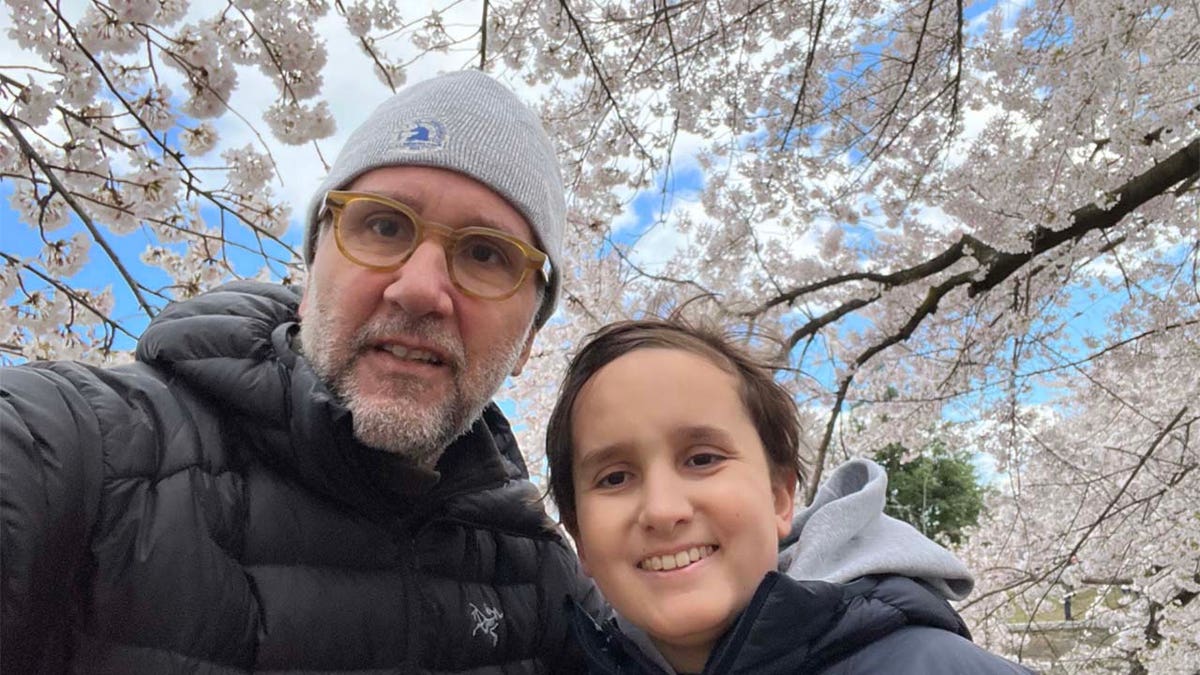Father launches international effort to accelerate research into rare pediatric brain tumor
After his son’s relapse, Fernando Goldsztein founded the Medulloblastoma Initiative to spur collaboration and funding for treatments that have changed little since the 1980s
A father whose son was diagnosed with a rare pediatric brain tumor has launched an international campaign to accelerate research and development of new treatments for medulloblastoma, an uncommon but deadly childhood cancer.
Fernando Goldsztein said his son, Frederico, was diagnosed at age 9 and later relapsed. Goldsztein said physicians told the family there was little more they could do to save his son, prompting him to found the Medulloblastoma Initiative to mobilize scientists, clinicians and funders across borders.

Goldsztein, whose family has worked to build an international network of researchers and advocates, said children with brain tumors have been comparatively neglected in recent decades because standard therapies have not evolved as rapidly as treatments for other childhood cancers. "Kids with brain tumors were left behind. Because the treatments are very old, they are from the 80s, believe it or not," Goldsztein said.
Medulloblastoma is the most common malignant brain tumor in children but remains rare overall. Epidemiological estimates place the incidence at roughly five cases per 1 million children per year. That rarity has made it difficult to attract sustained research funding and to mount large-scale clinical trials, advocates say.
Globally, childhood cancer remains a major health challenge. St. Jude Children’s Research Hospital estimates about 400,000 children will be diagnosed with cancer worldwide this year. In the United States, advances in diagnostics and treatment have led to substantial gains in survival: roughly 80% of children with cancer now survive at least five years after diagnosis. But survival rates vary widely by cancer type, and brain tumors are a leading cause of cancer-related death in children.
Goldsztein’s initiative aims to change that trajectory by fostering international collaboration that can pool patients, data and funding to speed development of targeted therapies and clinical trials for medulloblastoma. Families and researchers say coordinating across centers and countries is especially important for rare diseases, where single institutions rarely see enough patients to conduct definitive studies.
Efforts to advance treatment have included new approaches such as molecularly targeted drugs and cellular therapies. In recent years, isolated reports have described patients with aggressive brain cancers responding to investigational cell-based treatments. Those cases have raised hopes that novel immunotherapies could play a role in some tumor types, though clinicians emphasize that individual successes do not yet amount to broadly available cures.
Physicians and researchers involved with medulloblastoma research note that progress will require not only scientific advances but also resources to run multicenter trials, regulatory coordination across jurisdictions and improved access to molecular testing so patients can be matched to appropriate therapies.
Goldsztein has said his work combines fundraising, advocacy and efforts to connect laboratories studying the biology of medulloblastoma with clinicians running trials. He described the initiative as a response to the moment when families confront limited options and long-standing treatment protocols.
Advocates for children with cancer say the new initiative reflects a broader shift toward international cooperation in pediatric oncology. Large cooperative groups and consortia already exist for some childhood cancers, but the rare nature of medulloblastoma and its subtypes has made targeted, collaborative efforts especially urgent.
Researchers caution that building effective new treatments takes time. Clinical development requires careful testing for safety and effectiveness, and rare diseases often demand creative trial designs and greater coordination than more common cancers. Still, families affected by medulloblastoma and clinicians say coordinated international efforts offer the best path to bring new therapies from the laboratory to children who need them.
Goldsztein’s Medulloblastoma Initiative continues to recruit partners and raise funds to support cross-border research and clinical trials. Organizers say their goal is to shorten the timeline from discovery to treatment and to expand options for children diagnosed with this uncommon but serious form of brain cancer.
